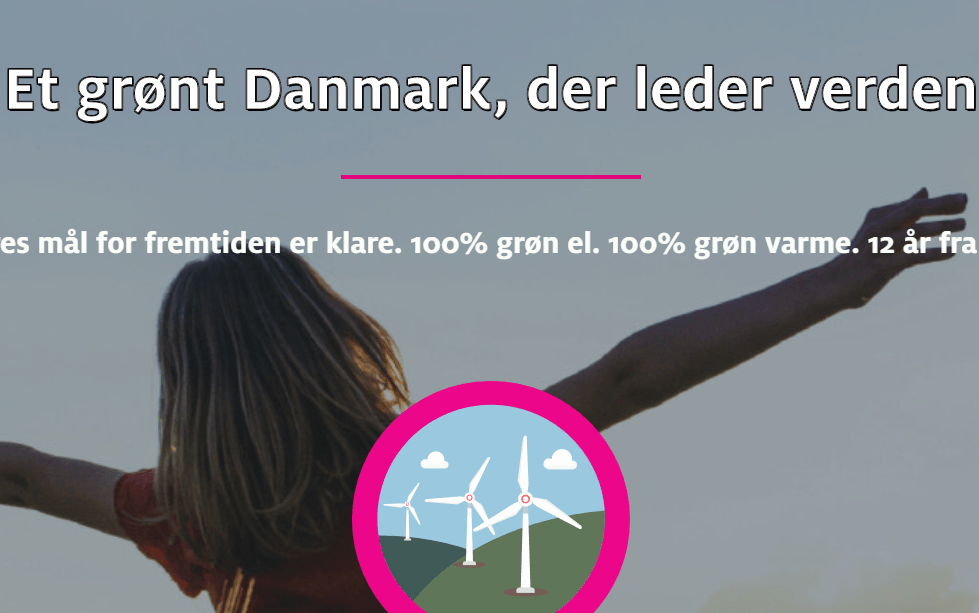As part of its new energy manifesto ‘Climate 2030 – A Green Denmark leading the World’ (here in Danish), the left-leaning party Radikale wants social media giant Facebook to help build wind turbines in Denmark.
According to Ida Auken, the Radikale energy spokesperson, Facebook should help finance new wind turbines in Danish waters to offset its plans to build a massive data centre in Odense in the near future – a centre that could potentially emit millions of tonnes of CO2 every year.
“We think that they should help ensure there should be just as much wind energy secured as the amount of energy used by their data centre,” Auken told TV2 News.
“We think that when they come to Denmark, it’s because of our green energy and not just to suck electricity from us. And if their entrance into Denmark means that our CO2 emissions increase, then they haven’t made the world a better place.”
READ MORE: It’s official: Facebook green-lights massive data centre in Denmark
Dubious plan
But Henrik Ørholst, a business expert, doesn’t think sustainability is an essential priority for Facebook, and he considers Auken’s plans naïve.
Facebook is in the business of making money, he argued, although he did admit that Apple has partly-financed wind turbines in the past.
“Of course it’s a good argument, but perhaps a little bit naïve to think that it can be done when other countries can offer the same thing without them needing to invest,” Ørholst told TV2 News.
“Any American boss is hired to make as large a profit as possible, so they would find themselves in trouble if he paid too much and generated less profit for the shareholders.”
READ MORE: IKEA powering itself with green energy in the Nordic countries
CPR Register turn 50
Sunday was a big day for Denmark’s civil registration system, the CPR Register, as it celebrated 50 years of existence. Founded on 2 April 1968 – the same day as the premiere of Stanley Kubrick’s ‘2001: A Space Odyssey’ – the CPR Register contains information such as the name, address and citizenship of people in Denmark. For people born in Denmark, the CPR is assigned to them moments after birth by the midwife. Today it is considered one of the most important public IT systems as it supports a number of essential processes that make up Denmark’s society.
More voter rights for handicapped?
The justice minister, Søren Pape Poulsen, is aiming to change the law to enfranchise some of the handicapped people currently prevented from voting in the next elections. Today, there are about 2,000 Danes who have been stripped of their right to vote at Parliamentary elections because they require others to run their economies. The government will begin analysing the issue over the summer and come up with some alternative models for Parliament to take a look at. Incapacitated citizens are permitted to vote in local, regional and EU elections but not, according to the Danish constitution, in Parliamentary elections.
Smileys for kennels
The government has rolled out a new initiative that will give smileys to kennels and animal lodges to make sure they take good care of the animals staying there. The Danish veterinary and food administration, Fødevarestyrelsen, will be charged with evaluating whether animals are kept well and given fresh air, food, activity and a decent amount of space during their stays. Similar to the smiley system allocated to food joints, Fødevarestyrelsen will hand out happy, average and angry smileys to the kennels based on their performance. The nearly 230 kennels in Denmark will face an annual control visit from Fødevarestyrelsen.
Helping the undernourished elderly
The elderly minister, Thyra Frank, is behind a new effort to ensure that Denmark’s aged population don’t become undernourished. The plan calls for municipalities to be able to seek funds to try out different models for nourishment efforts. More than every second elderly person living in an elderly home, or who receives help at their own home, is at risk of being undernourished. Studies show that undernourishment can have serious consequences for the elderly, such as increased illness, a decreased quality of life and reduced functionality.















